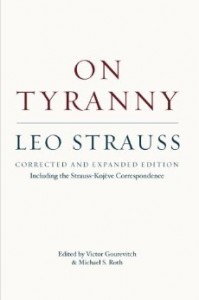When I was a student at Wesleyan in the 1970s, I had the extraordinary experience of taking a very small seminar (a tutorial really) on the philosopher Georg Friedrich Hegel with Victor Gourevitch — now William Griffin Professor of Philosophy Emeritus. Prof. Gourevitch taught classes in political philosophy, but also on the ancient Greeks. He had been a director of the Center for the Humanities, and students circulated tales of his biting wit and demanding assignments. He didn’t seem to fall into the conventional categories of campus politics in those days; my peers didn’t know what to make of him.
The Hegel seminar was life changing for me. There were only a few of us, and we worked our way through the major texts in the late afternoon hours. I don’t know if I’d ever worked so hard before, or if I’d ever felt that lost in a book. I remember Prof. Gourevitch once noticing my underlinings on the text and asking me if the passages I hadn’t underlined were the ones I wanted to remember. Hegel saw history as the realization of truth. Making sense of past, he taught, gave one the opportunity to be fully alive to the present. This was very heady stuff for someone with my interests in psychology and history. During one of our seminars he also mentioned one of the great 20th century readers of Hegel, a Russo-French philosopher named Alexander Kojève.
Years later I would write my Ph.D. dissertation on Kojève and other French Hegelians. In the course of the research I asked Kojève’s widow, Nina Ivanoff, if she had ever found letters among his papers from Leo Strauss, a German-Jewish philosopher who’d emigrated to the United States. “Why would I have,” she said with some impatience, “the papers have already been thoroughly studied by other scholars. But come back tomorrow and we’ll talk.” When I arrived the next day there was a stack of letters from Strauss. In them the two mentioned the young Victor Gourevitch, who had come from Strauss’ classes at the University of Chicago to study with Kojève (and translate some texts). Eventually, I went to Chicago to find the other side of the correspondence.
In collecting these letters, I knew I had come upon something very important, and I turned to my teacher to ask for help. Prof. Gourevitch and I (mostly, he, really) deciphered the letters as best we could, and he translated them from the German. We wrote an introduction together, sitting in his Middletown living room, getting agreement on each sentence. The correspondence deals with some of the great questions of political theory, most centrally the relation of philosophy to society and to history. Strauss argues that philosophy abdicates its responsibility when it bends to the will of society, or tries to articulate truths that will be confirmed by historical events. From his perspective, philosophy’s questions will always challenge convention, and they will often challenge those self-styled radical thinkers who pride themselves as being unconventional. Kojève, by contrast, argued that philosophy was its time articulated in thought. Echoing Hegel, he insisted that philosophy divorced from history led to irrelevance or madness. He also argued that meaningful historical change had reached its end, though he recognized that we might continue to polish up our conveniences and distractions. A meaningful debate over time between people with such different, basic and passionate commitments is very rare. Perhaps this is one of the reasons why so many have been drawn to our edition (1991) of Strauss’ On Tyranny, which includes the Strauss–Kojève correspondence.
Without that seminar on Hegel, I would never have pursued the research that led to Kojève’s widow and eventually to On Tyranny. More broadly, it was the inspiration, guidance and friendly counsel I received from my Wesleyan professor that helped shape much of my orientation to teaching and thinking about philosophy and political theory. The Wesleyan in which we worked together was a place for this kind of intellectual camaraderie not limited (so it seemed to me) by bureaucratic borders or campus politics. Students and faculty (who often disagreed about other things) worked side by side on issues that mattered to them, and that sometimes would wind up mattering a great deal to others.
Prof. Gourevitch, ever careful, has made some amendments to our earlier edition, and we have decided to include a paragraph by Strauss that illuminates aspects of his objections to Kojève. The University of Chicago Press has just brought out our “corrected and expanded edition.”
Strauss and Kojève held positions about as far apart as two people could hold within philosophy, and yet they engaged in discourse at the very highest level. Right now at Wesleyan, as in the past, students and faculty are working together on issues, concepts, and data about which people can passionately disagree. New discoveries and original arguments will be developed, sometimes about the past, often about the present and future. What remains steady is a devotion to learning together in ways that matter beyond the college years and beyond the university. Even when one works on tyranny, engaged cooperation can be the most enduring lesson.



